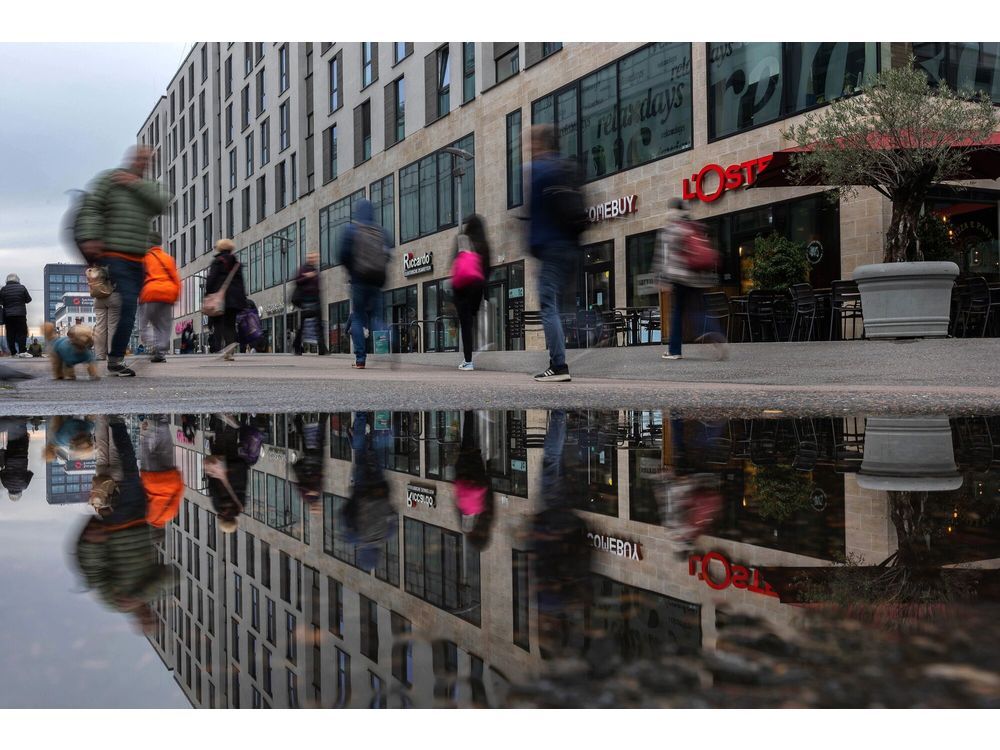
Article content
(Bloomberg) — A drop in household spending drove Germany’s contraction in the third quarter as Europe’s largest economy began what the Bundesbank reckons may be a recession.
Gross domestic product shrank 0.1% in the three months through September, the statistics office reported Friday, confirming an initial reading. Consumer spending dropped 0.3% from the prior quarter, while government outlays rose.
Article content
The data highlight both the country’s struggle to recover from its energy-induced downturn last winter, and the mounting impact of higher borrowing costs. Germany is the only major economy predicted by the International Monetary Fund to contract this year.
High energy prices and weak global growth continue to pose major headwinds to Germany’s outsized manufacturing base. Several big industrial firms have started cutting costs, and chemical maker BASF SE plans to reduce investment by almost 15% over the next four years.
Business surveys published Thursday highlighted “considerable weakness” in the private sector, though easing conditions point to a return to growth for next year. The Ifo institute’s index due later on Friday is expected to show a slight uptick.
High interest rates continue to weigh strongly on demand too, with the full impact on the economy yet to come. An easing of monetary conditions shouldn’t be expected anytime soon, despite the dramatic inflation slowdown to 2.9% in October, according to the European Central Bank.
Officials including Bundesbank President Joachim Nagel have even said that another rate hike might be necessary to return consumer-prices growth to the 2% target, pushing back against market bets on a cut as soon as April.
Last week’s constitutional court ruling is a further curve ball. Bloomberg Economics estimates that the economy may grow next year by less than half the pace it could otherwise have achieved as the government reacts to the judgment.
—With assistance from Joel Rinneby and Kristian Siedenburg.
Share this article in your social network